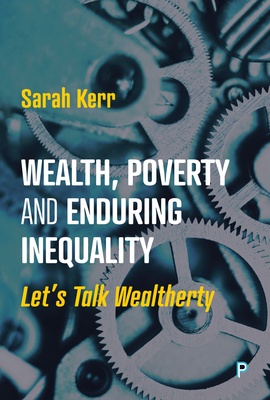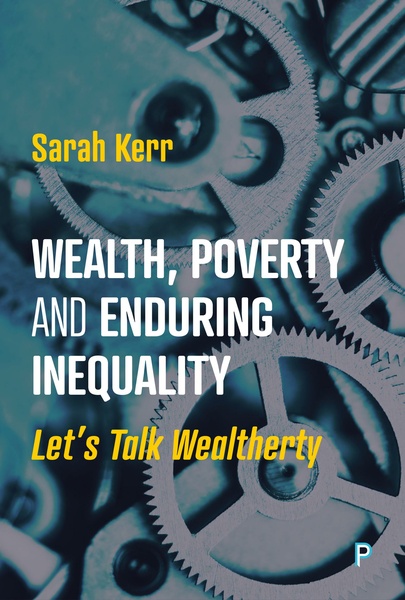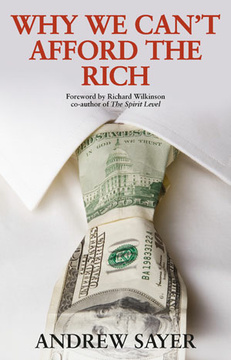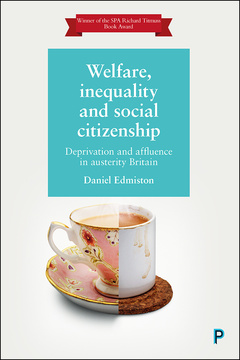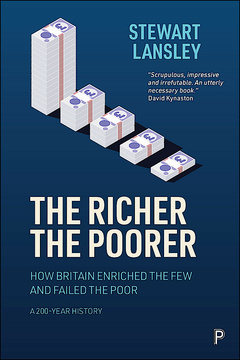Published
Sep 27, 2024Page count
256 pagesISBN
978-1447370567Dimensions
234 x 156 mmImprint
Policy PressPublished
Sep 27, 2024Page count
256 pagesISBN
978-1447370550Dimensions
234 x 156 mmImprint
Policy PressPublished
Sep 27, 2024Page count
256 pagesISBN
978-1447370574Dimensions
234 x 156 mmImprint
Policy PressPublished
Sep 27, 2024Page count
256 pagesISBN
978-1447370574Dimensions
234 x 156 mmImprint
Policy PressDownload a colour version of the image from the Preface (pg xi)
In the media
Danny Dorling review of the book for Jacobin Magazine
Q&A with Sarah Kerr on Wealth, Poverty and Enduring Inequality for LSE Review of Books
The rich and the poor in the UK are subject to radically different legislative approaches. While the behaviours of the poor are relentlessly scrutinised, those of the rich are ignored or enabled.
In this book, Sarah Kerr suggests that we live in a state of ‘wealtherty’, characterised by the hyper-concentration of wealth and a stark distinction between the rich and the rest. Drawing on evidence from the 1500s onwards, she reveals a long history of government scrutiny of the poor and ignorance of the rich. She contests contemporary policy and practice which disregards the enduring role of the rich in the production of poverty and poverty in the production of the rich.
In pursuit of social and economic justice, this radical book challenges policy makers and researchers to stop talking about poverty and to start addressing the problems caused by wealtherty.
“Sarah Kerr has written an angry, compelling book about how we need to see wealth as a social problem, and end our stigmatising perspectives on poverty. This book will make you see the world quite differently!” Mike Savage, London School of Economics and Political Science
“A vital critique of the idea, conveniently promoted by generations of political leaders, that today's mass impoverishment is independent of extreme inequality.” Stewart Lansley, author of The Richer The Poorer: How Britain Enriched the Few and Failed the Poor
Sarah Kerr is a Research Fellow at LSE International Inequalities Institute. Her research interests are in the broad area of justice-making.
Part 1: What have we become?
1. Why wealtherty and why now?
2. The state of wealth and the state and wealth
Part 2: how have we become what we are?
3. Knowing: how the state came to know richer and poorer people differently
4. Governing: how the state came to govern richer and poorer people differently
5. Being: how ways of governing enabled different forms of self for richer and poorer people
Part 3: What sustains the problem?
6. Producing knowledge: think tanks and policy networks
7. Shaping behaviours: Space and the visual as tools of government
8. Shaping selves: wealth and identity
Part 4: In conclusion
9. Ways out







